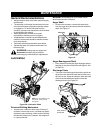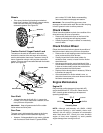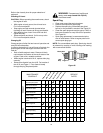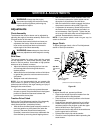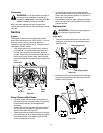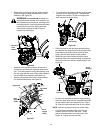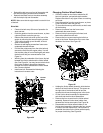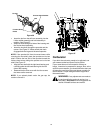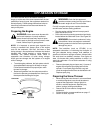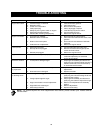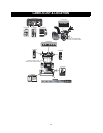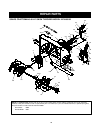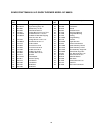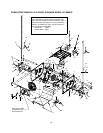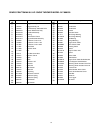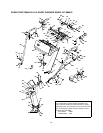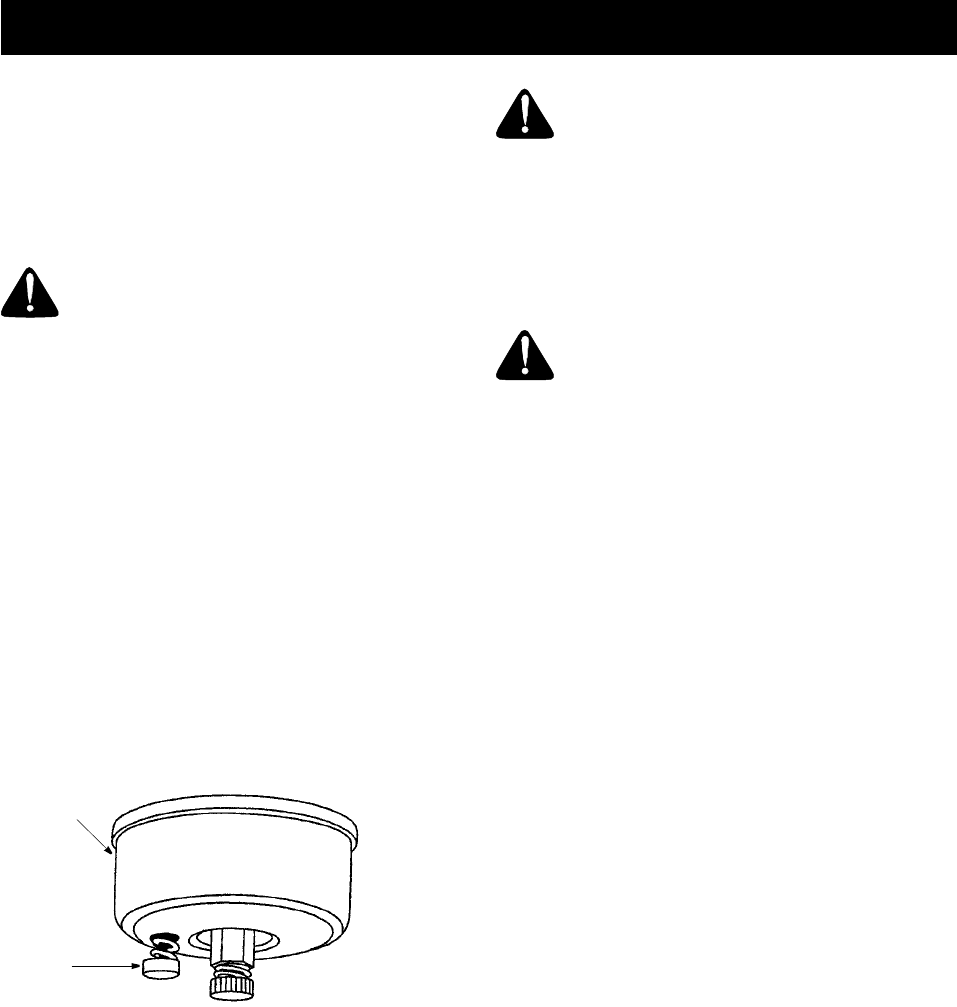
25
If the snow thrower will not be used for 30 days or
longer, or at the end of the snow season when the last
possibility of snow is gone, the equipment needs to be
stored properly. Follow storage instructions below to
ensure top performance from the snow thrower for
many more years.
Preparing the Engine
NOTE: It is important to prevent gum deposits from
forming in essential fuel system parts of the engine
such as the carburetor, fuel filter, fuel hose or tank
during storage. Also experience indicates that alcohol
blended fuels (called gasohol or using ethanol or
methanol) can attract moisture which leads to
separation and formation of acids during storage.
Acidic gas can damage the fuel system of an engine
while in storage.
• To avoid engine problems, the fuel system should
be emptied before storage for 30 days or longer.
Follow these instructions to prepare your snow
thrower for storage:
• Remove all gasoline from the carburetor and the
fuel tank to prevent gum deposits from forming on
these parts and harming the engine.
Figure 38
Fuel left in engine during warm weather deteriorates
and will cause serious starting problems.
• Run the engine until the fuel tank is empty and it
stops due to lack of fuel.
• Drain carburetor by pressing upward on bowl drain,
located below the carburetor cover. See Figure 38 .
NOTE: Fuel stabilizer (such as STA-BIL) is an
acceptable alternative in minimizing the formation of
fuel gum deposits during storage. Add stabilizer to
gasoline in fuel tank or storage container. Always follow
mix ratio found on stabilizer container. Run engine at
least 10 minutes after adding stabilizer to allow it to
reach the carburetor. Do not drain carburetor if using
fuel stabilizer.
• Remove the spark plug and pour one (1) ounce of
engine oil through the spark plug hole into the
cylinder. Cover spark plug hole with a rag and
crank the engine several times to distribute the oil.
Replace spark plug.
Preparing the Snow Thrower
• When storing the snow thrower in an unventilated
or metal storage shed, care should be taken to
rustproof the equipment. Using a light oil or
silicone, coat the equipment, especially any
chains, springs, bearings and cables.
• Remove all dirt from exterior of engine and
equipment.
• Follow lubrication recommendations on page 17.
• Store in a clean, dry area.
WARNING: Never store snow thrower with
fuel in tank indoors or in poorly ventilated
areas, where fuel fumes may reach an open
flame, spark or pilot light as on a furnace, water
heater, clothes dryer or gas appliance.
Carburetor
Bowl
Drain
WARNING: Drain fuel into approved
container outdoors, away from any open flame.
Be certain engine is cool. Do not smoke.
WARNING: Do not drain carburetor if using
fuel stabilizer. Never use engine or carburetor
cleaning products in the fuel tank or permanent
damage may occur.
OFF-SEASON STORAGE



